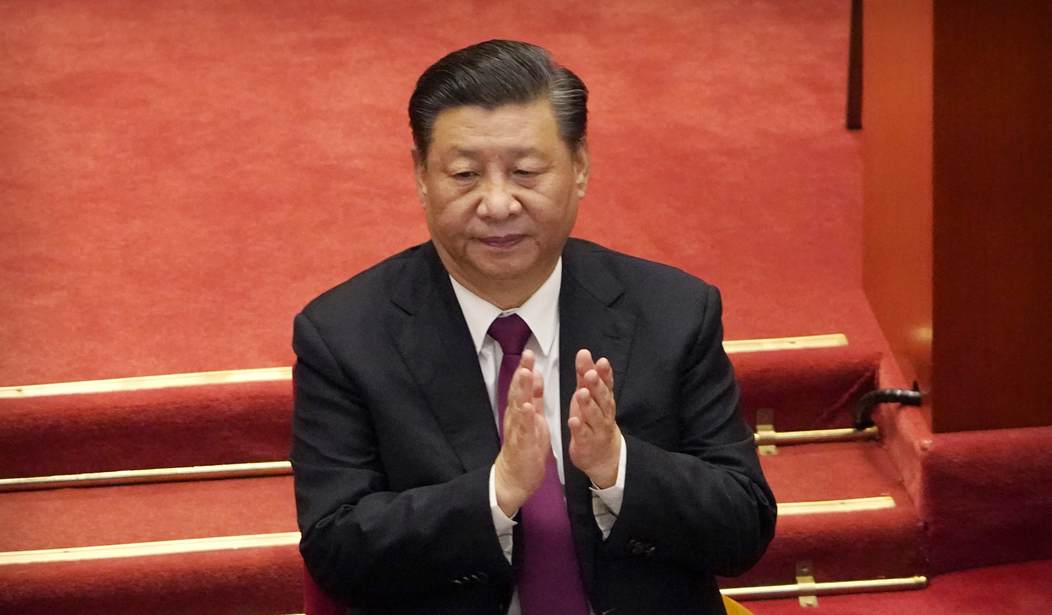In 2020, the year that the COVID pandemic -- which originated in the People's Republic of China -- hit the United States, Americans imported $61,689,114,229 in "cell phones and other household goods" from that country.
In 2021, Americans imported $75,104,920,094 in Chinese-made cell phones and other household goods.
In 2022, the Census Bureau reported last week, Americans imported $78,766,814,842 in Chinese-made cell phones and other household goods.
In the three years since COVID hit, the United States has increased its annual imports of "cell phones and other household goods" from China by $17,077,700,613 -- or approximately 27.7%.
The only import that Americans spent more money on last year than Chinese cell phones and other household goods was Canadian crude oil. In 2022, this country imported $113,465,977,527 in crude oil from our northern neighbor.
But while no other Canadian product made the Top 10 for U.S. imports last year, Chinese-made computers and Chinese-made toys, games and sporting goods did.
In 2022, America's third largest imported product after Canadian crude oil and Chinese cell phones and other household goods was Mexican-made "other parts and accessories of vehicles" ($57,707,116,244). The fourth was Chinese-made computers ($52,571,086,869). The fifth was Irish "pharmaceutical preparations" ($50,327,409,168). The sixth was Mexican-made trucks, buses and special purpose vehicles ($43,936,008,573). The seventh was Chinese-made toys, games and sporting goods ($41,311,867,317). The eighth was Mexican-made computers ($34,660,140,616). The ninth was Mexican-made "passenger cars, new and used" ($34,624,461,556). The 10th was Japanese-made "passenger cars, new and used" ($32,816,429,484).
Recommended
In 2022, Americans spent a combined $131,337,901,711 on Chinese-made computers, cell phones and other household goods.
How do you put that $131.3 billion in perspective?
In 2021, the median household income in the United States was $70,784. The $131,337,901,711 that this country sent to China in exchange for cell phones, computers and other household goods last year equaled the combined income of approximately 1,855,474 American households earning the 2021 median income.
In fiscal 2022, according to the U.S. Treasury, our federal government spent $80.865 billion on the Department of Homeland Security -- which is supposed to secure our borders and enforce our customs and immigration laws. That was equal to only about 61.57% of the money we sent to China in exchange for computers, cell phones and other household goods.
This nation needs to return to the trade policy of the Founding Fathers.
On July 4, 1789, President George Washington signed the first federal revenue law. It did not impose a direct income tax on the American people -- which the Constitution made an impractical option prior to the ratification of the 16th Amendment in 1913.
The tariffs signed into law by Washington served two purposes: to raise revenue for the federal government and to protect and encourage American manufacturing.
When the Tariff Act was being debated in Congress, Rep. Thomas Hartley of Pennsylvania explained its purpose.
"If we consult the history of the ancient world," Hartley said on the House floor on April 9, 1789, "we shall see that they have thought proper, for a long time past, to give great encouragement to the establishment of manufactures, by laying such partial duties on the importation of foreign goods, as to give home manufactures a considerable advantage in the price when brought to market."
"I take it to be the policy of every enlightened nation," said Hartley, "to give their manufactures that degree of encouragement necessary to perfect them, without oppressing the other parts of the community; and under this encouragement, the industry of the manufacturer will be employed to add to the wealth of the nation."
Two days later, Rep. William Smith of Maryland presented the House with a petition made by some workers from Baltimore.
"That, since the close of the late war, and the completion of the revolution, they have observed with serious regret the manufacturing and the trading interest of the country rapidly declining, and the attempts of the state legislatures to remedy the evil failing of their object," said this petition.
"(T)hey look up to the supreme legislature of the United States as the guardians of the whole empire," it said, "and from their united wisdom and patriotism, and ardent love of their country, expect to derive that aid and assistance which alone can dissipate their just apprehensions, and animate them with hopes of success in future, by imposing on all foreign articles, which can be made in America, such duties as will give a just and decided preference to their labors, discountenancing that trade which tends so materially to injure them and impoverish their country; measures which, in their consequences, may also contribute to the discharge of the national debt and the due support of government: that they have annexed a list of such articles as are or can be manufactured amongst them, and humbly trust in the wisdom of the legislature to grant them, in common with other mechanics and manufacturers of the United States, that relief which may appear proper."
The first American Congress and the first American president sided with these workers -- and with American manufacturing.
The current Congress lets billions of dollars in cell phones, computers and other goods manufactured in a nation ruled by a Communist regime flood the markets of this country every single month.

























Join the conversation as a VIP Member